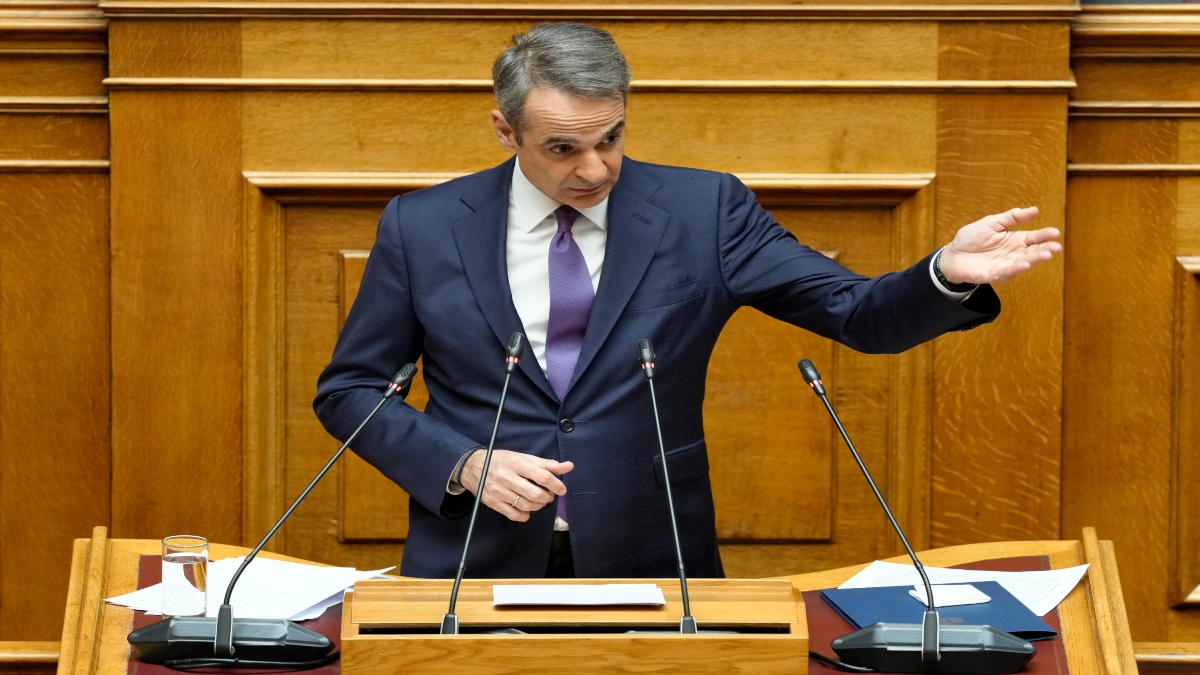Greece Prime Minister Kyriakos Mitsotakis on Wednesday announced in parliament plans to invest €25 billion ($27 billion) in a 12-year defence strategy, marking the most significant transformation in the country’s armed forces history.
According to a Politico report, this new defence strategy is centered around two main pillars: the incorporation of advanced defence technologies and the active involvement of the Greek defence industry in all arms programmes.
“The world is changing at an unpredictable pace,” Politico quoted Mitsotakis as saying.
“We are now facing a different kind of war than we were used to — at least the kind our armed forces were prepared for,” he added.
The new plan aims to modernise Greece’s armed forces as the country emerges from a decade-long financial crisis and seeks to match the defence advancements of Turkey, its historical rival.
This initiative comes as US President Donald Trump urges Nato allies to increase defence spending. Greece already allocates over 3% of its GDP to its military, more than double the EU average.
Mitsotakis criticised Europe’s defence strategy in recent decades, saying that it has been “geopolitically naive” and failed to grasp geopolitical realities.
The continent is now racing to address the challenges posed by Russia and support Ukraine while the US shifts its foreign policy.
“In 2017, the then and current US president, in the peculiar way of expressing himself, spoke a great truth: that after the fall of the [Berlin]Wall and the collapse of socialism, Europe ceded its defence obligations to the United States, without the EU fulfilling its obligation to Nato,” Mitsotakis was quoted as saying.
“Europe cannot pretend today and say in this jungle that it is a herbivore in the midst of carnivores,” he added.
Greece’s arms procurement plan, extending to 2036, will emphasise cyber capabilities and include unmanned vehicles, loitering munitions, drones, a communications satellite, and an anti-missile, anti-aircraft, and anti-drone defense system known as the “Achilles’ Shield”, reported Politico.
Mitsotakis stressed that the involvement of the Greek arms industry in future programme is “a non-negotiable condition” for major defence investments.
To facilitate increased spending, the European Commission will invoke the EU’s national escape clause, which exempts military expenditures from the bloc’s budgetary limits.
Mitsotakis described this as an important initiative for budget flexibility, though he emphasised the continued need for restraint.
“The ultimate judge is the markets and the sustainability of our debt. The flexibility must be used sparingly so as not to derail our path,” he said.
Greece’s government has backed European Commission President Ursula von der Leyen’s defense program but is not actively participating in a coalition of Southern European nations seeking to increase military spending through grants instead of loans to avoid debt.
Mitsotakis suggested that the EU should eventually consider establishing a fund for projects of common European interest, like a European anti-missile shield, but noted, “But we are not there yet.”
Recently, Greece announced its first pay raise for armed forces personnel in 14 years to attract young talent.
However, this reform sparked controversy within the ruling New Democracy party, with MPs and ministers calling for pay hikes to also include other uniformed personnel.
Mitsotakis indicated that further increases would be announced in September, but stressed that fiscal flexibility should not lead to excesses, as “the markets are watching us closely” and the economy’s performance is crucial for security and stability.
With inputs from agencies


)
)
)
)
)
)
)
)
)



